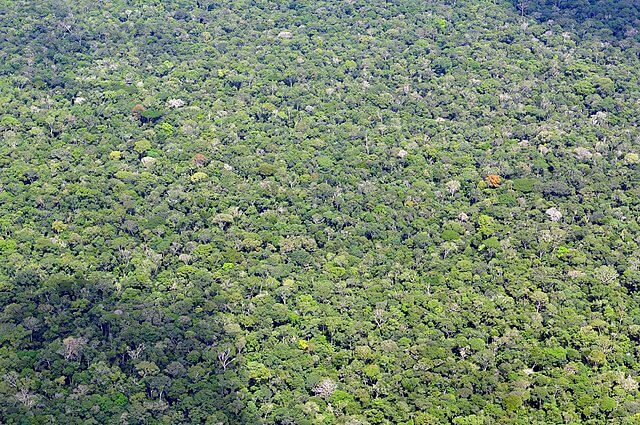
Deforestation in the Brazilian Amazon has witnessed a significant decline, with July figures showing a remarkable 60% reduction compared to the same month last year.
This positive development comes ahead of a regional summit aimed at preventing South America’s largest biome from reaching a catastrophic tipping point.
While the exact data will be released shortly, independent analysts have already lauded the preliminary results as “incredible,” suggesting that this improvement compared to the same month in the previous year may be the most substantial since 2005.
The rapid progress underscores the impact of political change in the region. A year ago, during Jair Bolsonaro’s far-right presidency, the Amazon faced one of the most devastating deforestation seasons in recent history. However, since Luiz Inácio Lula da Silva assumed office at the beginning of the year, the government has taken steps to penalize land grabbers, conduct paramilitary operations against illegal miners, designate more indigenous lands, and establish additional conservation areas.
These developments will provide support for Lula, Marina Silva, and other Brazilian hosts as they convene an Amazon summit in Belém on August 8-9. The summit aims to strengthen regional cooperation among eight rainforest nations: Brazil, Colombia, Bolivia, Peru, Ecuador, Venezuela, Guyana, and Suriname.
Marina Silva emphasised the urgency of the climate crisis, marked by record heatwaves in South American countries. She stressed that the summit must deliver concrete and ongoing results to prevent the Amazon from reaching a critical point where it could start to wither and perish—an outcome scientists have warned is approaching.
To achieve this, Silva proposed that each country develop an action plan, establish a joint scientific panel for regular updates, and share best practices. The summit’s three main goals are the protection of the forest and traditional communities, addressing inequality, and strengthening democracy.
The key to Brazil’s improvement, home to 60% of the Amazon, has been the establishment of robust targets.
“The main reason is the decision of Lula to aim for zero deforestation. Since then, we have created new conservation units and indigenous territories that have produced some results … Now we need to move towards a new model of prosperity that is less predatory, less damaging to local people and the forest.”
In the first half of the year, deforestation in the Brazilian Amazon decreased by 34% compared to the same period last year, according to the Deter satellite alert system. While the July figures, which typically mark the onset of clearance season, are still being compiled, Silva expects to see a substantial improvement of “at least 60%” compared to the same period last year, with independent analysts suggesting it could even reach 70%.
“It’s incredible, totally crazy,” said Tasso Azevedo, a forest engineer and founder of the MapBiomas analytical group. “This is on course to be the sharpest fall since 2005. We are still figuring out why this is happening so fast.”
Several factors contribute to this slowdown, including government measures to resume embargoes and other protective activities, enhanced technical analysis for quicker problem identification, increased reluctance among banks to provide credit to tree-clearing landowners, and concerns among farmers due to the European Union’s new laws on deforestation-free trade. Notably, deforestation hasn’t dropped as significantly in the cerrado savanna, which is not yet subject to EU controls.
While Silva cautioned that a single month’s preliminary satellite data doesn’t establish a trend, she remains optimistic, drawing parallels with her tenure as environment minister from 2003 to 2008. Back then, it took two years for policies to yield results, despite federal police support. This year, the ministry has operated with fewer resources, relying more on remote embargoes of soy and cattle based on satellite monitoring.
“It’s different now. The problem is more serious and more complex, but we have more experience and we know how to do it,” she said.
Silva hopes that this improvement can pave the way for a new era of prosperity based on sustainable resource usage, open markets for certified products, the development of a bioeconomy, and increased financial support from wealthy nations benefiting from the Amazon’s role as a climate stabiliser and rainmaker.
External investments, trade, and financial backing will be pivotal in demonstrating a viable alternative to destructive cattle ranching and soy plantations. Despite facing staunch opposition from Brazil’s agribusiness and oil lobbies, as well as congressional erosion of her ministry’s power, Silva remains committed to combating rampant deforestation.
Additional challenges arise from El Niño, causing extreme weather events, including severe droughts and heatwaves in the region. This could exacerbate drought and fire risks in the Amazon in the coming months. Nevertheless, Lula and Marina Silva have pledged to prioritize zero deforestation in their political agendas, striving for continuous reductions leading up to the United Nations climate conference Cop30, expected to take place in Belém, Amazon, in 2025.
——————————————————————————
At Natural World Fund, we are passionate about stopping the decline in our wildlife.
The decline in our wildlife is shocking and frightening. Without much more support, many of the animals we know and love will continue in their decline towards extinction.
When you help to restore a patch of degraded land through rewilding to forests, meadows, or wetlands, you have a massive impact on the biodiversity at a local level. You give animals a home and food that they otherwise would not have had, and it has a positive snowball effect on the food chain.
We are convinced that this is much better for the UK than growing lots of fast-growing coniferous trees, solely to remove carbon, that don’t actually help our animals to thrive.
This is why we stand for restoring nature in the UK through responsible rewilding. For us, it is the right thing to do. Let’s do what’s right for nature!
Donate today at https://naturalworldfund.com/ and join in the solution!

